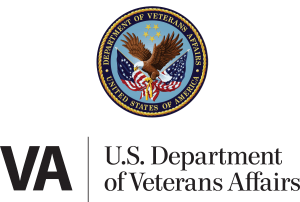Please note: This trial has finished recruiting and is not accepting new participants.
Research Center 1: Tuscaloosa VA Medical Center (TVAMC)
Location: 3701 Loop Rd, Tuscaloosa, AL 35404, United States
Lead Researcher: Lori Davis, MD
Research Center 2: VA Connecticut Healthcare System (VACT)
Location: 950 Campbell Ave, West Haven, CT 06516, United States
Lead Researcher: Ismene Petrakis, MD
Research Center 3: Wayne State University
Location: 42 W Warren Ave, Detroit, MI 48202, United States
Lead Researcher: Seth Norrholm, PhD
IRB Committee: This study has been reviewed and approved by all local (Tuscaloosa VA Medical Center IRB; Wayne State University IRB; West Haven VA IRB) Institutional Review Boards
Background

Post-Traumatic Stress Disorder (PTSD) and Alcohol Use Disorder (AUD) can interfere with the lives of the person affected, their family and close friends. About 18 million Americans who experience Alcohol Use Disorder (AUD), also known as problematic drinking, may also suffer from Post-Traumatic Stress Disorder (PTSD). Often, people may use alcohol to potentially manage their PTSD symptoms. However, this may cause PTSD symptoms to become worse and may lead to an addiction.
Researchers are investigating a new combination of two FDA-approved treatments for addiction. This study aims to learn the effectiveness of this potential combination of treatments on decreasing heavy alcohol use and the symptoms of PTSD. Through this study, researchers hope to improve treatment options and the quality of life for people recovering from problem drinking and PTSD.
Interested participants must be adults 18 to 70 years old (19-70 in Alabama) who are suffering from problem drinking and symptoms of PTSD. Participants must be willing to comply with all the necessary study requirements. Eligible participants will receive compensation for study visits. The study is open to veterans, service members, and civilians (i.e. people who have not served in the military).
Why Participate?
- You may experience decreased drinking and have potential improvements to your PTSD symptoms.
- You may be able to better manage drinking and PTSD symptoms.
- You will potentially receive a treatment that is FDA-approved for alcohol use disorder at no cost during your study participation.
- You may contribute valuable information that may help others struggling with problematic drinking and PTSD in the future.
- You will be compensated up to $420 ($425 for the CT site) for participating in this study.
- You will be helping to advance research on AUD and PTSD.
Your Rights
- If you decide to participate in the study and later feel that you no longer wish to be part of it, you may withdraw at any time.
- Your records relating to this study and any other information received will be kept strictly confidential, except as required by law.
- Qualified health professionals will monitor your health as it relates to the study.
Who Can Participate?
- Adults aged 18 to 70 years old (19-70 in Alabama) who are experiencing both problematic drinking and symptoms of PTSD and who meet the study’s eligibility criteria.
- Able to attend in-person study visits at screening, baseline, week 4, week 8, week 12 and week 14 at the research site and be available for a phone assessment during weeks 1, 2, 6, and 10.
- Participants should expect to spend about 20 hours in total for this research study.
- Study visits will be broken down into 3 different parts: (1) screening and baseline assessments, (2) medication visits, and (3) outcomes assessment visits.
About the Research Center

Tuscaloosa VA Medical Center (TVAMC)
The Tuscaloosa VA Medical Center (TVAMC) is located in West Alabama, where the facility is situated on a beautiful campus of 125 acres with 25 major buildings. TVAMC provides treatment for PTSD and substance use disorders, primary care, long-term health care, rehabilitative care, and mental health care services to eligible Veterans in VISN 7. The TVAMC has a well-established clinical research program that has been in operation for 23 years. This study is open to Veterans and non-veterans.

VA Connecticut Healthcare System (VACT)
VA Connecticut Healthcare System was officially formed in 1995 with the integration of the VA medical centers in West Haven and Newington. VA Connecticut serves Veterans in Connecticut and southern New England. The West Haven campus is a tertiary care facility classified as a Clinical Referral Level One Facility. The West Haven VA Connecticut Healthcare System has a well-established research program that is affiliated with Yale University. Veterans and non-Veterans are eligible to enroll in this study.

Wayne State University
Wayne State University is known for its academic excellence and pioneering research. Wayne State University is Michigan’s only urban research university, and is the recipient of the Carnegie Foundation’s highest classifications for research and community engagement. From medicine and mechanical engineering to graphic design and geology, the Wayne State faculty members are renowned for innovation and expertise in their fields. This study is open to veterans and non-veterans.
Please note:
Due to the current situation with COVID-19 pandemic, the study team would like to point out the following:
- The research site’s waiting area is spacious enough that participants will not be within close proximity to each other and scheduling is coordinated to limit clinic capacity.
- Hand sanitizer is available at the research site and frequent use is encouraged.
- Participants and staff are required to wear facial masks or facial coverings while in the buildings at the research site. For Connecticut, single ply face coverings are not allowed (e.g bandanas, buffs)
- The research staff adheres to strict hygienic practices as well as other safety measures to prevent the spread of COVID-19.
- Any staff suspected to have COVID-19 or to have been in contact with someone who has COVID-19, will automatically undergo a voluntary quarantine for 14 days.
- Participants will be seen promptly and not left waiting for the appointment to start.
- Parking is available at the research site.
- The study team encourages the use of personal vehicles, taxi or rideshare services rather than public transit.
- The research site is taking all precautionary measures to ensure the safety of the study participants, such as cleaning high-touch surfaces before and after a participant visits in the clinical research areas.